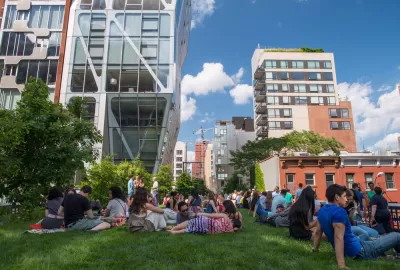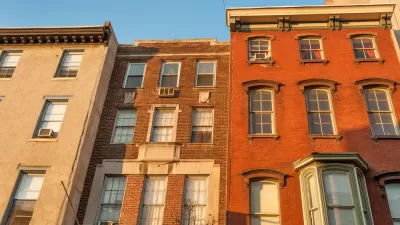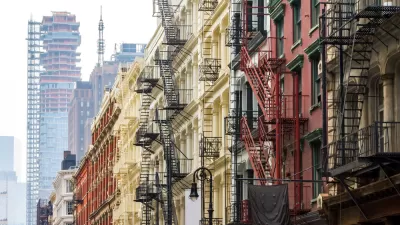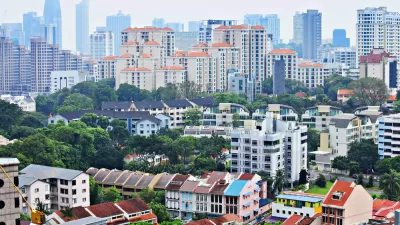The public health and economic crises caused by the coronavirus are threatening to further entrench inequality in America—between regions and within cities.

According to Clara Hendrickson and Mark Muro, "the pandemic might intensify the unevenness of America’s divergent economy, with disturbing implications."
Because the coronavirus first spread through affluent urban centers—San Francisco, Seattle, and New York City—some have wondered whether the pandemic would bring about a more geographically balanced economy by inspiring white collar workers will move in droves to less expensive parts of the country that could badly use the economic boost. "Don't bet on it," write Hendrickson and Muro. "Despite the increasing adoption of digital technology in American workplaces, economic activity has become more—not less—concentrated," according to the duo. As for why:
...while the density of large cities may be a disadvantage in fighting the spread of the coronavirus, it likely will remain an advantage in a 21st century knowledge economy, where the biggest places with the richest exchanges of ideas among highly educated workers have enjoyed the greatest economic returns.
The article also examines the pandemic's unequal consequences within cities (i.e., not just the inequality between cities and regions)—as neighborhoods in some of these cities, filled by blue collar workers keeping the economy afloat while bearing the brunt of the public health consequences of the pandemic.
FULL STORY: Will COVID-19 rebalance America’s uneven economic geography? Don’t bet on it.

Alabama: Trump Terminates Settlements for Black Communities Harmed By Raw Sewage
Trump deemed the landmark civil rights agreement “illegal DEI and environmental justice policy.”

Study: Maui’s Plan to Convert Vacation Rentals to Long-Term Housing Could Cause Nearly $1 Billion Economic Loss
The plan would reduce visitor accommodation by 25% resulting in 1,900 jobs lost.

Planetizen Federal Action Tracker
A weekly monitor of how Trump’s orders and actions are impacting planners and planning in America.

Waymo Gets Permission to Map SF’s Market Street
If allowed to operate on the traffic-restricted street, Waymo’s autonomous taxis would have a leg up over ride-hailing competitors — and counter the city’s efforts to grow bike and pedestrian on the thoroughfare.

Parklet Symposium Highlights the Success of Shared Spaces
Parklets got a boost during the Covid-19 pandemic, when the concept was translated to outdoor dining programs that offered restaurants a lifeline during the shutdown.

Federal Homelessness Agency Places Entire Staff on Leave
The U.S. Interagency Council on Homelessness is the only federal agency dedicated to preventing and ending homelessness.
Urban Design for Planners 1: Software Tools
This six-course series explores essential urban design concepts using open source software and equips planners with the tools they need to participate fully in the urban design process.
Planning for Universal Design
Learn the tools for implementing Universal Design in planning regulations.
Caltrans
Smith Gee Studio
Institute for Housing and Urban Development Studies (IHS)
City of Grandview
Harvard GSD Executive Education
Toledo-Lucas County Plan Commissions
Salt Lake City
NYU Wagner Graduate School of Public Service





























